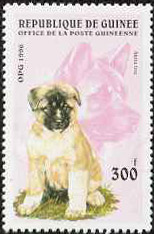
Early socialisation of puppies
Socialising puppies before they have finished their course of vaccinations
source: Richard Newey
Veterinary Record vol 149 no 25, December 22 2001 p780
The 1991 Dangerous Dogs Act is flawed, and was passed in too much of a hurry, but early socialisation can help to tackle the problem. Puppies need to get used to humans of different types, as well as other animals, noises, and other stimuli. They learn more easily at between one and three-months-old, though they should stay with their litters until they are about two-months-old. After that age they need to go out and explore the world.
There is, however, the problem that vaccinations against parvovirus, distemper, and other diseases aren’t effective until the pup is around 12-weeks-old, when maternal antibodies have nearly disappeared. Puppies can be vaccinated at two-months-old, with a second dose at three months, and this provides good protection after a few days have elapsed from their initial vaccination. Pups are not likely to encounter infection in most parts of the UK, so the risks they face are very small.
The organisation Guide Dogs for the Blind has had a policy of vaccinating in this way, and advising puppy walkers to take the pups out, and this has also been advised with dogs at a vet practice. No clinical cases of infection have been seen, and owners and pups appear to have benefited, while the pups also seem to have grown into dogs that bite less.
DO,BT


